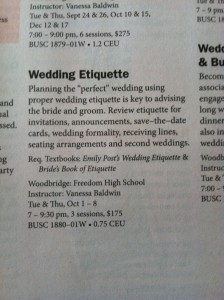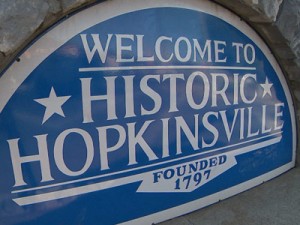
My honeymoon was so bad, it was funny. From before it even began, during, and afterwards, it was completely unlike anything anyone could have imagined, much less planned.
It was the Monday before our wedding in October, 1979. It was a glorious and crisp autumn afternoon. The trees were ablaze with red, orange, yellow, and golden leaves, and the sun shone brightly. We had been home from work just a short while and were sipping on a glass of wine when the doorbell rang. Dave got up to see who was at the door, and the sight of our unexpected guest was astonishing. The frame of his body seemed to fill the entire doorway, allowing only a sliver of sunlight to outline the mass. His reflector aviator sunglasses shielded his eyes, but his square jaw protruded nonetheless. He wore a suit, his muscles bulging beneath.
“Mr. Russell?” he inquired in a deep voice befitting such a hulk, although he must have known that the man who opened the door was Mr. Russell.
“Yes,” Dave answered tentatively.
He identified himself as a federal marshal and presented Dave with a court summons to appear in court in Lubbock, Texas the following week. Dave glanced at it and attempted to give it back, saying, “I can’t. I’m getting married Saturday and I’ll be on my honeymoon.”
“Mr. Russell, you WILL be in Lubbock,” he said authoritatively. “Oh, by the way, make sure you bring the clock with you.” He didn’t wait for a reply, but instead turned around and walked to the white, unmarked car parked in front of our flat.
It was at this point that I thought that perhaps I should have gotten to know the man I was to marry a bit better. I sat waiting for an explanation for why he was being summoned to appear in court. It was then that I heard the story behind the marble antique clock that was sitting atop the mantle. Apparently it was given to my beloved from a friend as payment for helping him move some “stuff,” specifically, thousands upon thousands of dollars of antiques that he had bought for a Texas “oil man.” The problem was that the friend had supposedly forgotten to give the Texan the goods for which the man had paid, and now he was was being brought to trial, accused of grand theft. Dave, having possession of the clock, was considered an accessory.
There was no getting around the fact that whatever honeymoon plans we had made were abandoned in favor of an unexpected trip to Texas. And where WAS Lubbock, anyway? I certainly had no clue. Resigned to our destiny, we purchased our plane tickets and prepared to leave the morning after our wedding. All that week a cloud hung over us; on one hand, excited about getting married, but bummed out that we couldn’t go to the Lake of the Ozarks like we had planned.
Our best man shuttled us to the airport on departure day, and we checked our suitcases, but not the clock which had to be hand-carried, lest it disappear into that abyss otherwise known as Lost Baggage. Because it was made of marble it was quite heavy and Dave cursed it repeatedly, especially when we had to race through the Dallas airport to catch our connecting flight to Lubbock. When we disembarked, Dick Tracy was waiting for us. He still wore his reflecto-aviator sunglasses, but instead of a suit he wore a polo shirt that appeared to be tight, but actually it was his muscles that was stretching the material beyond its natural limits.
He chauffeured us in the unmarked police car to what appeared to be a three-star motel, but given where we were, it was probably one of the nicer motels in Lubbock.(Little did we know that a week later, we would give it an even lower rating.) After we thanked him and bid him farewell, he announced that he was, in fact, our babysitter for the duration and that he would be “just outside the door.” This is not good news for newlyweds. Evidently, Dave was the star witness and Dick Tracy had been given orders to shadow us. Our honeymoon was going from bad to worse real fast.
The next day, he and Dave, along with the marble antique clock, headed to federal court. I began writing Thank You notes for wedding gifts we had received. When they returned later that afternoon, I could barely get excited at the prospect of going out for dinner because I knew our chaperone would go with us. He gave us the courtesy of not sitting at our table, but sat at another one a few feet away. Afterwards, the three of us made our way back to the motel, no one uttering a word.
Day Three in Lubbock was a repeat of Day Two, except for the news that Dave’s testimony was over and we were free to go back home on Wednesday. This was cause for celebration! After dinner we asked Dick Tracy if we could go to the movies and see “Animal House,” which had just been released. He consented and we made our way to the movie theater. He sat directly behind us.
Words cannot describe how happy we were to catch sight of the Arch as our plane made its descent into St. Louis the following day! We began settling into life together and when the following week rolled around, we returned to our teaching jobs and recounted the details of our most unromantic honeymoon to our co-workers, who thought it hilarious.
It wasn’t long after our return that my nether regions began to itch incessantly all day long. I had no idea what it was, and I was afraid to say anything to anyone, even Dave. Scratching only seemed to make it worse. I didn’t know what to do. Then one night, shortly after the itching began, Dave got out of bed and headed for the bathroom. He yelled, “Holy shit!” and then he came back into our bedroom, flipped on the ceiling light, and announced in a voice that was angry/stern/disbelieving, “Maria, I’ve got the crabs. I know where I’ve been. How about you?”
I began crying hysterically saying, “I think have them, too, but I was too embarrassed to tell you.” Truly, I didn’t even know what crabs were. Never was the subject discussed in any of the Catholic schools I had attended. Immediately, we put the blame on the motel in Lubbock, for neither of us had been anywhere else.
Thank goodness that a 24-hour drug store was nearby. Despite my humiliation and embarrassment, I laughed when Dave recounted how the clerk, a teenage girl, gingerly handed him the bag containing the bottle of RID shampoo, using only her index finger and thumb as she stood as far away from him as she could. We each took turns bathing in the stuff, paying extra-special attention to the infested areas, and eventually the horror gave way to hilarity because the start of our marriage was nothing short of ridiculous.
While this story remained a secret between the two of us for a long time, I can freely recount it now, thirty-five years later. Given the crazy adventures Dave and I have had in our lifetime together, it seems only right that our marriage would have begun in such an unusual way.










